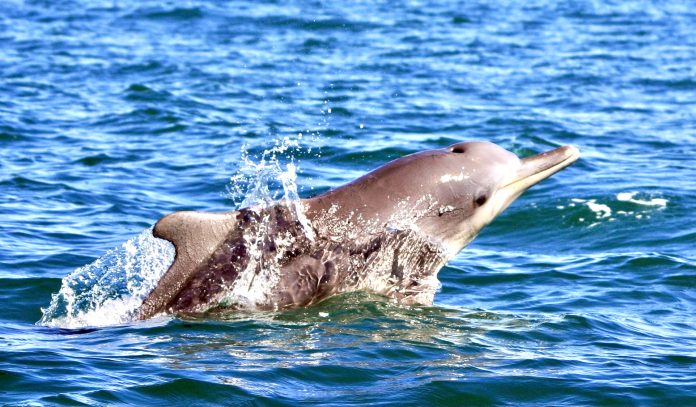
New Petition Calls For Critically Endangered Atlantic Humpback Dolphins To Be Added To The U.S. Endangered Species List
By Lauren Lewis
You can help all animals and our planet by choosing compassion on your plate and in your glass. #GoVeg
RELATED ARTICLES
Banning Cruelty: New Legislation Aims To Ban Octopus Farming In The U.S.
New bipartisan legislation has just been introduced in the U.S. to ban commercial octopus farming and prohibit imports of farmed octopus from foreign countries.
The...
Outrage In Yellowstone! Grizzly Bear Killed By Wildlife Officials & Left With Head & Paws Cut Off
Photo by: Trisha McFarland / Cowboy State Daily
A photo of a dead grizzly bear with its head and paws cut off has caused an...
Inside Florida’s Illegal Horse Meat Trade: Undercover Footage Shows Racehorse Being Shot & Butchered
A heart-wrenching discovery of illegal horse slaughter has emerged, with video footage exposing the tragic killing of a racehorse named 'Funny Biz,' who was...
Popular stories
News
WAN Talks With CA Fish & Wildlife About The Search For A 13-Month-Old Missing Black Bear In Lake Tahoe
The California Department of Fish and Wildlife (CDFW) and Lake Tahoe Wildlife Care (LTWC) are requesting the public’s help in locating a young, orphaned...
News
Urgent Call To Action! Help Stop Massive Slaughter Of Thousands Of Wild Horses & Burros By The BLM In The United States
The Bureau of Land Management (BLM) just released a profoundly misguided report which includes provisions for massive roundups of 20,000 to 30,000 wild horses and burros each...
US News
Victory! Washington Becomes The Seventh State To Ban Cruel Wildlife Killing Contests
A coalition of state and national wildlife protection organizations is applauding the Washington Fish and Wildlife Commission for its vote to ban cruel wildlife...


